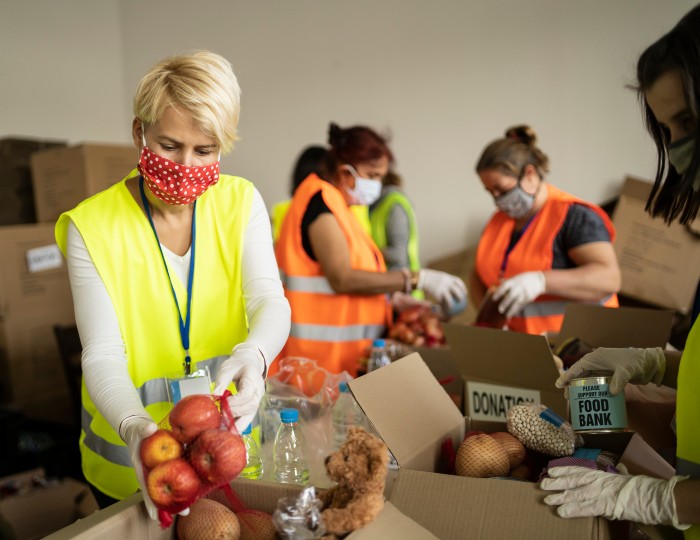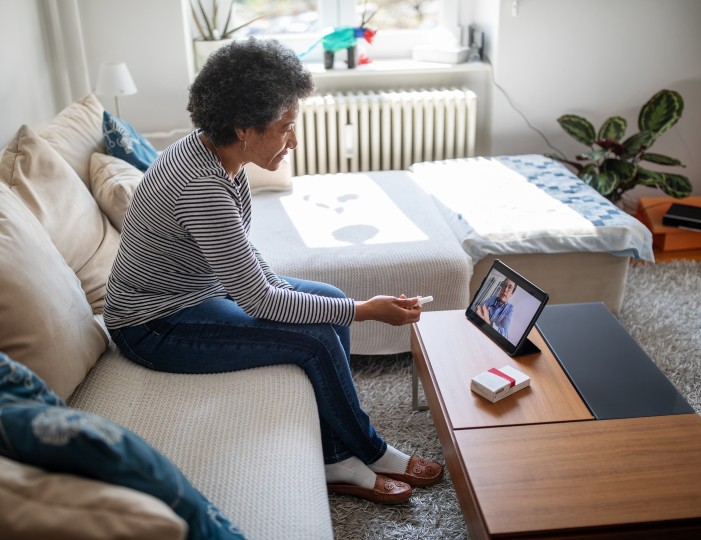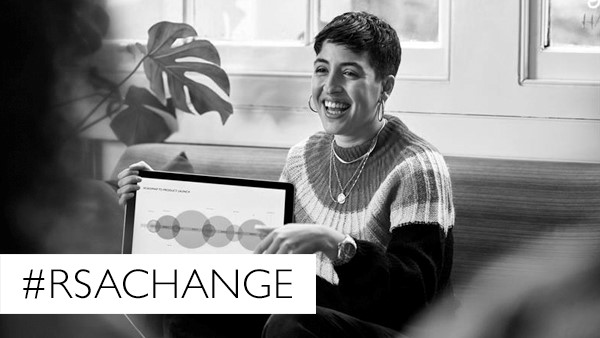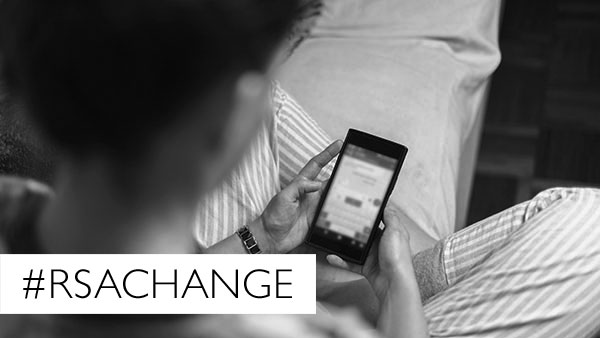“Please Believe, These Days Will Pass.” This was the hopeful message that appeared on billboards in cities across the UK in the depths of the first lockdown. And ultimately, that was the overall spirit of those times as people responded to an engulfing pandemic. Community came together, solidarity and resilience were high. Those days were anxious, death rates were high, but key workers, community organisations, friends and families came together, though often at distance.
Now, in a third and even more brutal Covid-19 wave that resilience remains but it has been far harder. Governments didn’t do all they could; it is hardly unimaginable that, in the UK, by the time the pandemic is through we will have lost a city the size of Milton Keynes. Globally, the death toll could wipe out the equivalent of a country the size of Norway. The scale of loss is shocking. The personal legacy of illness, grief, anxiety and the rising wave of economic hardship will be with us for a generation at least. But these days will pass and, given the pace of vaccine roll-out and their efficacy, a far less severe stage of pandemic is in sight.
Disasters have a velocity. A hurricane does its damage in hours, survival is secured through actions taken minute-by-minute; it cannot be ignored for a second. Ecological disaster, like the ones we are facing – from global heating to biodiversity loss and resource depletion – unfolds over decades and the response is needed over years. For this reason, it becomes easier to push environmental crisis to the back of our minds for a while.
Covid-19 sits in the middle zone, as HIV-AIDS also did, and does its work over the middle distance. We manage to survive through new habits of thought and action that we act on day-to-day. We neither have to be instantaneous in our response but nor can we put it out of mind. Our lives can continue alongside change and that is, in many respects, what has been so exhausting: we are living new and old realities at the same time and they are out of sync.
So here we stand, stuck in the middle of past lives we took for granted, a present we want release from and a future we are only beginning to imagine once again. One set of optimists, with the technology of modern medicine in their back pocket, tell us the past can return. And they are right to the extent that those things we barely reflected upon before the pandemic – like seeing loved ones – we now cherish and will be brought back within reach. Another set of optimists tell us that this time is different; that a new future will inevitably emerge where the fissures in our democracies, economies and ecology will be healed. They are right to the extent that in many nations, the damage to health and the economy is so great that the changes made already, in understanding why collective and state action matters, are irreversible.
A dash to the future seems unlikely. Nonetheless, however weary, we cannot stay rooted to this moment
A return to the past seems implausible. Exhausted as we are, a dash to the future seems unlikely. Nonetheless, however weary, we cannot stay rooted to this moment. In her book Hope in the Dark, originally published in 2016, the American historian and feminist, Rebecca Solnit, encourages us to find realistic hope amidst darkness: “A disaster is a lot like a revolution when it comes to disruption and improvisation, to new roles and an unnerving or exhilarating sense that now anything is possible.” She reminds us not just that change is possible but also that recent times have seen: the expansion of civil liberties, not least through the recognition of gay and lesbian rights; successes in securing economic justice such as the spread of living wage mandates, a vibrant global environmental preservation and regeneration movement; the growing sense that structural racism has to be addressed in the present; and, to some degree, a greater attention and response to the needs of less wealthy societies through development aid and debt forgiveness.
In all these cases, change was and will continue to be hard fought. Progress has been won through the marshalling of knowledge and innovation, through action within civil society –involving mass experimentation and exploration of possible futures – and through direct engagement of society’s power structures. Both restorationists and revolutionaries often miss the breadth and depth of societal change. The former seek to persuade us to cling to what is gone, the latter to grab what has yet to be. Necessary change has a different poetry, a less steady rhythm. Turning points are rare; transitions take place across generations. To see change, we have to live it. That is why the RSA sees change as a living and evolving organism: the essence of our Living Change Approach, the theme of our events, podcasts, blogs and reports for the coming weeks.
To see change, we have to live it. That is why the RSA sees change as a living and evolving organism
Nineteenth century shadows and twenty-first century dreams
In 1984, George Orwell wrote: “Who controls the past controls the future: who controls the present controls the past.” The circularity here emphasises what a struggle it is to escape the long shadow of the past. Not only are we not free of the twentieth century, with its wars and their echoes living on across the globe, we, in the West primarily but also beyond, have not yet even freed ourselves from the nineteenth century. Enlightenment civilisation, mis-titled though it arguably is, has dominated our economy, ecology and politics for two centuries. At the heart of this worldview is the notion of competitive struggle.
There has barely been any field of thought that has not been imbued with the ideology of struggle. Even the ideas of Darwin – emphasising adaptability to changing contexts over time – we were repurposed as ‘survival of the fittest’ in the phrase of Herbert Spencer.
The struggle was about competing individuals, almost always men, firms, ideas, nations, races or religions. The spoils were for ‘civilisation’ despite its endeavours often far from being something that can be described as civilised. The shadow of the struggle lives on in colonial legacy, including the scar of slavery, and the detachment of humanity from nature so that nature can be objectified and exploited.
As John Maynard Keynes famously said, “Madmen in authority, who hear voices in the air, are distilling their frenzy from some academic scribbler of a few years back.” Many more than one scribbler as it happens but the essence here is apt; where we find ourselves now has not emerged from some natural state of being but is grounded in a deep ideology, that of the primacy of struggle. This ideology has not been all bad: we have medical advances, mesmerising new technologies, wider democracy, a greater space for systematic public administration, and the living standards of the poorest and weakest are less harsh than the pre-Enlightenment years (though there were many decades when they weren’t).
The downsides of the struggle ideology, though, are great. Burdens include racialised violence and degradation over centuries, the impending and potentially cataclysmic shift of climactic conditions and the loss of life, human and non-human, that we are facing. This is not something that affects only one part of the world: the Gulf Stream is slowing. The institutionalisation and the cultural reinforcement of domination, not least by men of women, persists as does the way in which significant minorities are left without sufficient security of income and consequently, life.
Ideology of struggle ends up as self-defeating. If there was one trait that enabled homo sapiens to prosper, it was its ability to co-operate. Struggle places us behind in the ‘race’. Co-operation over everything else provides us with the special advantage that has enabled sapiens to colonise the planet. If the biosphere of that planet is to replenish then the ideology of struggle must slowly but surely be replaced by ideas of co-existence and replenishment; of regeneration. But what force can shift an ideology that has dominated for centuries? The answer is alternative action at scale and over time.
As Solnit argues in A Paradise built in Hell, disaster is when conventional thinking and social organisation fall away and new possibilities open up. She recounts the spread of not charity but mutual aid in the aftermath of disasters.

This resonance is clearly not lost on the many who lined up to provide Covid Aid, or many forms of spontaneous organisation in response to the pandemic. For example, the state of West Virginia organised its own distribution network for vaccinations through trust local pharmacies rather than the big chains contracted by the federal government. Meanwhile, Ceredigion in Wales established its own successful track, trace and isolate system. Elsewhere in the UK, numerous local authorities established, with the help of communities, charities, churches and other public services, support networks for the vulnerable. The Trussell Trust reported a massive expansion of its food banks, supported by volunteers, with half of people receiving food parcels using them for the first time in 2020.
Research from More in Common – which has teams working in the US, UK, France and Germany – found that 63% of people say that they feel part of a community of people who ‘understand, care for, and help each other’ compared to 49% prior to the pandemic.
Does any of this ultimately matter? Don’t people come together in a crisis and go their separate ways again? For sure but where Solnit is undoubtedly right is that the yearning for greater solidarity and the experience of solidarity matters. The past 12 months raise deep doubts of the struggle ethic. The next 12 years could help us feel our way away from nineteenth century ethics with some more light to guide the way.
A twenty-first century ethic would be founded on bridging values. We would understand the importance of self-determination whilst valuing our social nature. Our economic lives would not come at such an enormous social, health and environmental cost. Old injustices, of domination and exclusion, would be confronted, whilst mindful of possible new injustices and the destructive force of a sense of grievance and ostracism. Our inter-connectedness would not be articulated in terms of an ideology of globalism nor localism but in the range of relationships in which we are embedded, inseparable. The full human array of our selves – embedded in relationships, place, identity, creativity, innovation, beliefs, ideals, culture, art, hopes and dignity – would be valued and safeguarded. Nineteenth century ‘man’ and ‘his’ struggles would be left in the past. As the former dissident and President of the Czech Republic, Vaclav Havel, wrote in The Power of the Powerless: “A better system will not automatically ensure a better life. In fact, the opposite is true: only by creating a better life can a better system be developed.” That ‘better system’ is one that doesn’t valorise domination through struggle.
Return to home
One feature of modern domination is that it is increasingly done at distance. We rarely see and hear the consequences of our actions at close quarters. The environmental damage we wreak often impacts communities across the world. The unequal nature of our economy hides most of its victims – what the British professor of development studies, Professor Guy Standing, calls the ‘precariat’ – whether this precariat are in unsafe working conditions across the world or unseen poverty on our doorstep. Both are invisible.
We are ethically spared the consequences of the decisions that we make; at least we have been up until now. Environmental damage is becoming inescapable and the economic precarity of many has been exposed by the pandemic.
And there is a nagging sense of culpability. What if we aren’t simply observers but participants in the domination of nature and other people? And yet individual action alone feels futile, nothing more than gesture. The German systems thinker, Daniel Wahl, encourages us to go on a collective ‘learning journey’ and cautions us that if we: “begin to believe we have permanent answers to offer, we leave the path of ‘living the questions’ and we run the risk of stifling creativity, adaptive capacity and transformative innovation.” He encourages us to seek ‘regenerative cultures’; those that grow abundance for future generations, where we can meet economic and social needs whilst living within planetary boundaries. This thinking sits at the heart of the RSA’s Regenerative Futures work and our Living Change Approach, which seeks to help change-makers address social challenges through an evolutionary process combining ideas, experimentation, learning, connection with others and systems of power.
If we fail to continually ask questions and learn as part of and from the biological systems in which we participate, we will rely on technological or technocratic solutions alone. As Covid-19 vaccines roll-out in developed countries, the risk is that a legacy is left in which we see technology as the singular solution to our wider challenges, failing to see the deeper lesson that the way we are interfacing with the natural world – and dominating it – may be at the root of our ills. How did Covid-19 pass from bats to humans to begin with? As we have dominated nature, other nations, and each other, we have escalated risk. Technology will be at best a vital yet partial response.
If we do not change our ways then other horsemen are ready to ride. The German philosopher, Jurgen Habermas, cautions us against letting Max Weber’s ‘iron cage’ of rationality, expressed in technocratic ideology, from consuming the ‘lifeworld’ of human interactions and ‘communicative action’; action taken through considered public discourse.

If we are to live our lives differently, we must act towards a better tomorrow. And that action starts at home, with the democratic design of different ways of providing for our economic, civic, social and ecological needs. In the UK, we see these different ways of building local resilience in the community wealth building movement, with its beacons in Preston and North Ayrshire. We see it in the new ways of sharing power between public services and citizens that emerged, for example, through the ‘Wigan Deal’ and its greater co-operation between the NHS, the local authority and those who relied on health and social care services. The Kings Fund found that these new co-operative ways of operating had noticeable impact on health outcomes. The community business movement, including community banks supported by the RSA for some time, are all gathering momentum.
In the US, the Biden White House has issued an executive order insisting that federal government departments use their purchasing, regulatory and convening powers to develop strong, resilient local supply chains. In the UK, the RSA’s Cities of Learning pilots in Plymouth and Brighton, draws together local stakeholders from employers to community groups and has been successful in enabling young learners to better acquire and demonstrate skills. Learning systems matter in addition to, and intersecting with, economic, environmental and social systems.
More widely, the bio-region movement is seeking to support the development on independent and inter-dependent ‘bio-regions,’ which can meet the social, economic, well-being and environmental needs of a wide area, whilst also containing its wider negative effects on global heating and bio-diversity. Bio-regions relate to each other and to communities within. The ‘community paradigm’ documented and explored by New Local and the wider ‘community power’ movement is an essential component of seeing these living systems of change coming to life. Social infrastructure, as the American sociologist Eric Klinenberg describes the local institutions such as community organisations and local people-centred services, space and places such as parks and libraries, are crucial to aggregate such power. For Klinenberg: “When you need people to make compromises and deep sacrifices in their personal life for the good of the collective, you need some sense of a collective to draw on.” Social infrastructure helps foster this collective sense. All of this requires serious public investment and that means we are going to have to ensure that the state does more heavy lifting on the resources front, whilst people and places, social innovators and entrepreneurs, do the heaviest work to adapt to a more together sustainable path.
In short, humanity must return home. This doesn’t mean becoming cut off, isolated and disconnected; nothing could be more foolhardy or harmful. And chauvinistic forms of nationalism, which, unfortunately, have been in the ascendency couldn’t be further from the answer. But we must think about how to meet as many of our needs locally and regionally as possible – whether it is related to food systems, health, fashion or inclusive economies – whilst limiting negative impacts on others.
To do that means encouraging participation and thinking about how our lives impact and could aid others. The only other two options are tech-solutionism, which leaves us too disempowered – whilst enriching the few – or economic and climate crisis. Better to strive for a good home within a strong global village. To get there requires urgent attention on a particular set of questions: economic security and dignity.
Security and dignity
There is no pathway, not even through a tech utopia, towards addressing widespread common challenges that does not see economic security as a top priority. Economic insecurity drives poor health and wellbeing, an absence of trust, anger at the system. It fuels a struggle to manage the everyday. Deep economic insecurity makes the solidarity through which we can reach to a better future impossible to attain. It turns us on one another.
Those in a heightened state of insecurity face what the RSA’s Economic Security Observatory has termed the ‘economic security trap’; essentially where people face impossible trade-offs between their access to income, assets, work and housing, their physical and mental health, and their ability to manage their private lives, including to care for their families. It is a state in which ‘lifeworlds’ disintegrate over time. The trap leaves far too little space for people to make decisions that could alleviate these trade-offs, which can be crushing even with love and support.
Economic security traps exist even in some situations of relative job security, underlining the fact that access to work is important but a far from sufficient guard against insecurity. The quality of our work and ability to maintain health, wellbeing and private or family life, is also critical. Many key workers have, compared to the average, enjoyed relative job security over the past year. However, this has come at enormous costs in terms of the impact on health and the levels of anxiety experienced by many workers – not just in health and social care – but also in essential retail, education and in criminal justice. Access to work and security matter but so does experience of work. The breadth of the experience of insecurity creates an opening for a different political conversation with unlikely allies across society.
Our ability to change one’s relationship to work also matters. This is why access to good employment law, trade unions, independent support for income (one reason why the RSA has taken such an interest in Basic Income), real living assets, retraining opportunities, healthcare and affordable, secure housing – as well as wider public services – are so important.

Data from the UK anti-fascist organisation, Hope not Hate, shows the national impacts that the pandemic has had more widely, not least on different ethnic groups. The numbers reporting needing to dip into savings is 30% for white British people rising to 46% for Asian British. The same data show a third of Black British people and one in five white British, have got into debt during the pandemic. And we know from previous RSA data that 40% the population only have access to a few hundred pounds of savings. Insecurity was a mega-challenge before the pandemic. Now it is even greater as economic pain is unevenly distributed.
We need a fundamental rethink of experience of work, assets, social security, health, housing and the ability to care for one’s own. Baroness and former UK homelessness ‘tsar’, Louise Casey, has called for a new Beveridge Commission and something of that scale is required. For 30 years Sir Michael Marmot has led a research group on health inequalities in the UK; his social determinants of health are another crucial entry point to the discussion. Such a fundamental change requires radical changes to policy and public systems but these alone are not sufficient. Social innovations that can support workers with money, health and collective power are crucial alongside changes to the role and responsibilities of employers. Economic life, health and private life are part of a whole and the solutions from the last decade have been woefully inadequate. That matters for individuals. But it also impairs our ability to confront wider critical challenges that rest on trust and openness to change. Economic insecurity has the opposite effect.
The US economist, Gene Sperling, proposes economic dignity as goal. If insecurity is the mega-challenge, dignity – where people can participate in the economy with pride, purpose and respect, pursue opportunity, whilst caring for others – is an appropriate aim. It is worth adding health to these pillars of ‘dignity’. Only then can we shed our defensiveness and be open to others and to change. If we leave economic insecurity unchecked we will also diminish our collective capacities and ability to act to meet the challenges we face.
Fatigued though we may be, a better future, where we lay a foundation of economic dignity
Bridge thinking; bridging action
Fatigued though we may be, a better future, where we lay a foundation of economic dignity, reconnect humanity within wider ecology, and open out democratic society to all without impediment, is possible but far from guaranteed. And ultimately, we can’t address ecological emergency, dignity in our economic lives, and democratic stresses other than in connection with one another. They are deeply inter-connected: to act on one we must act on all. We can leave nineteenth century ideologies behind and design a twenty-first century learning journey towards these greater ends. But we must act.
And over the coming weeks, the RSA’s Living Change series will share stories and perspectives concerned with those who are championing and provoking progress. They embody the evolutionary RSA approach of harnessing knowledge, reaching out to others, innovating and experimenting, showing what change can be, building alliances, seeing possibilities and focusing on big collective goals. There are designers, public servants, scientists, community organisers, social innovators, businesses, tech innovators, policy makers and thought leaders. They represent voices in our Fellowship and they seek to bridge values, communities and generations.
When we act together, innovate and explore, bridge different worlds and disconnected action then things can shift. These days will pass.
The RSA has been at the forefront of societal change for over 250 years – our proven Living Change Approach, and global network of 30,000 problem-solvers enables us to unite people and ideas to understand the challenges of our time and realise lasting change.
Make change happen. Find out more about our approach. #RSAchange
Related articles
-
Design for Living Change
Blog
Joanna Choukeir
The RSA is developing a new approach to ensure its research and innovation have greater impact.
-
If Covid-19 provides an opportunity to reset we should seize it
Blog
Matthew Taylor
The tools behind the RSA’s Living Change Approach are powerful, adaptable and accessible. Shall I go on?
-
How can you report pain if you struggle to recognise it?
Comment
Carly Jones MBE FRSA
During the first Covid-19 lockdown, Carly Jones became concerned about the autistic people she works with and how they and others who struggle to communicate pain would be able to gain timely care. So she designed and launched a self-funded app to help.




Be the first to write a comment
Comments
Please login to post a comment or reply
Don't have an account? Click here to register.